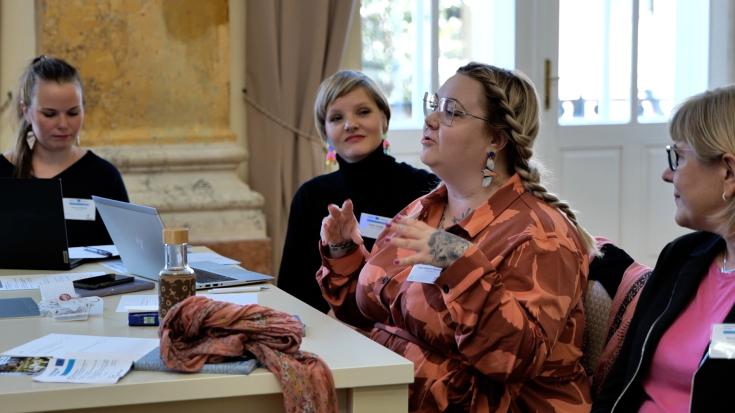Empowering people, talent, and activism in rural Europe

Nearly 60% of rural or intermediate areas in the EU are experiencing ongoing demographic decline, affecting around 40% of EU territory and a third of its people. These challenges call for innovative solutions in retaining people and talents, managing limited resources, and harmonising modernity with traditions.
This was the focus of the interregional exchange at CASPER meeting in Kaposvar, Hungary. Let's explore the valuable insights generated from this discussion.
Encouraging Youth Retention
In rural regions, the loss of young talents is often driven by insufficient employment options, inadequate services, and pervasive poverty. A primary strategy outlined at Kaposvar is incentivising younger demographics through age-specific discounts and benefits. Creating employment opportunities, particularly in areas showcasing local culture, agriculture, and technology, could anchor youth in their home regions. Promoting entrepreneurship and leveraging technology for remote employment were also emphasised. Suggested initiatives include skill-enhancement programmes and early community engagement efforts, alongside academic courses in green economy and agriculture that resonate with regional needs.
Combating Brain Drain and Emigration
People need work opportunities, remote work infrastructure, and good connectivity to rural areas. Encouraging businesses to root themselves in these regions, coupled with the enhancing quality of life through improved infrastructure, services, and a secure community environment, are key. Moreover, highlighting the unique lifestyle and health benefits of rural living, such as safety, community, fresh air, and access to fresh, locally-sourced produce, can reframe rural life as a desirable choice.
Addressing Resource Shortages
Rural regions grapple with both tangible and intangible resources shortage. Challenges such as poor infrastructure, financial constraints, and weak governance call for investments targeted at rural development, public and growth funding, and long-term strategic planning. Establishing shared co-working spaces can cater to the needs of remote workers and updating rural infrastructure.
In terms of intangible assets, there's a notable lack of essential skills, knowledge, and innovative thinking. Addressing these gaps requires comprehensive educational and mental training programmes aimed at community development. Fostering knowledge exchange at national, regional, and EU levels, and nurturing innovative thinking are vital to strengthening the socio-economic fabric of rural communities.
Smart Shrinking – Looking Ahead or Looking Back?
Smart shrinking involves striking a balance between adapting to modern demands and preserving traditions. ICT trainings to navigate safely in digital worlds, fostering inter-generational dialogues, and community events are effective strategies to merge old and new. In Nouvelle-Aquitaine, these connections are fostered creatively: the region hosts events where elders read to children, and both generations participate traditional board games, providing a rich, shared experience. The region also supports a short-cycle economy with locally produced goods, crafted using time-honoured techniques, and a local currency named “Pelou”.
Strengthening Rural Activism
NGOs and community associations are essential in revitalising and delivering social services in rural areas. Yet, their activists are aging and facing burnout. How can we create a resilient, involved, and continually rejuvenated pool of activists dedicated to rural revival? The key to this is instilling a spirit of volunteerism from an early age. Engaging children in community efforts, genuinely listening to their interests, and setting up designated volunteer days can spark a lifelong commitment to activism. Clear and effective communication is crucial to promote volunteering and clarify the missions and roles of these organisations to young people.
Activism involves more than just passion; it requires concrete support. This encompasses acknowledging the efforts of volunteers in meaningful ways, going beyond mere financial rewards, and ensuring that associations receive adequate resources from local municipality, possibly through shared responsibilities or collaboration in certain departments.